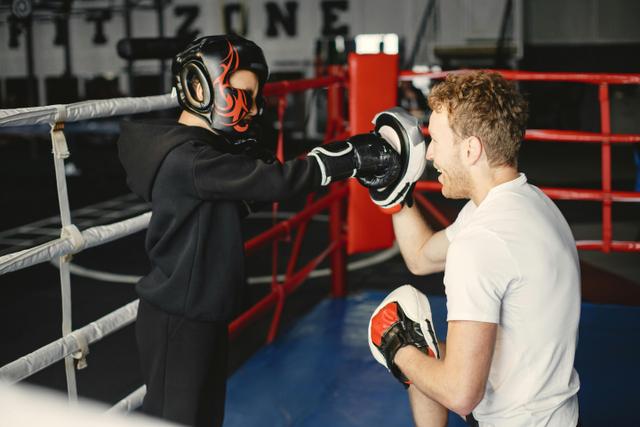Boxing Articles
Boxing For Kids In The UK
Boxing in the UK boasts a storied past that began in the 16th century with bare-knuckle bouts, a common leisure pursuit among working-class men at the time. This sport has significantly evolved over the centuries, transitioning from ungoverned pugilistic encounters to a structured, globally recognised athletic competition. The UK's deep-rooted connection with boxing helped establish it as a powerhouse in the sport, giving rise to numerous celebrated world champions who have triumphed on international platforms.
The formal structuring of boxing began with the foundation of the Amateur Boxing Association (ABA) in 1882, which marked a significant turn in how boxing was seen and organised within the country. The introduction of regulated competition brought a semblance of order and safety to the sport, which saw further validation when British boxers clinched three gold medals during the first modern Olympic Games held in Athens in 1896. Since these early days, boxing has seen a widespread increase in engagement across the UK, with multiple professional and amateur clubs emerging nationwide. These organisations not only provide training and competitive opportunities but also contribute to community cohesion by involving local youth and adults in regular sporting activities.
Today, the UK's boxing scene is richer than ever, with a myriad of clubs spread across the nation catering to various skill levels from beginners to experienced competitors. These clubs play a critical role in keeping the tradition alive, ensuring that the refined art and technical skills of boxing are passed down through generations. The widespread presence of these clubs fuels ongoing interest and participation in the sport, securing boxing's place as a significant component of the UK's sporting culture.
The Benefits of Boxing
Boxing offers significant health benefits for kids, making it a worthwhile activity for their physical and mental development. Engaging in boxing improves physical fitness through intense full-body workouts that enhance strength, endurance, and cardiovascular health. This vigorous exercise also boosts coordination and energy levels, contributing to better overall physical health.
Moreover, boxing has notable mental health benefits. It encourages kids to develop crucial life skills such as focus and discipline. As they master new techniques and face challenges in training, they build self-confidence and resilience. The sport is also an effective outlet for reducing stress and anxiety, promoting a sense of well-being.
Participating in boxing can also enhance a child’s academic performance. Regular physical activity, like boxing, is linked to improved cognitive abilities and better academic results. The discipline and focus learned through boxing translate into improved concentration and dedication in educational settings, helping children succeed both in and out of the ring. Thus, boxing is not only a means to physical fitness but also a catalyst for comprehensive personal development in young individuals.
FAQs
Is boxing safe for kids? Yes, boxing can be a safe and rewarding sport for children if proper precautions are taken. This includes supervision by experienced and certified coaches, using the right safety equipment, and adhering to the rules designed to protect young boxers.
What age can kids start boxing? Children as young as 5 or 6 can begin training in boxing. Many boxing clubs in the UK provide junior classes that cater to young beginners, offering age-appropriate training that focuses on fitness, technique, and safe practices.
Do kids need to wear protective gear when boxing? Absolutely, all children must wear appropriate protective gear during both training and competition. This includes gloves, headgear, mouthguards, and, for additional safety, groin guards and chest protectors for girls. These precautions help prevent injuries and ensure a safe training environment.
How often should kids train in boxing? Training frequency should be tailored to individual needs, but generally, kids should engage in boxing training 2-3 times per week. This allows for adequate development of skills and physical fitness while also providing sufficient rest and recovery time.
What are the long-term benefits of boxing for kids? Boxing offers numerous long-term benefits for children, including improved physical health, stronger mental discipline, and enhanced social skills. Regular practice can also enhance academic performance through better concentration and self-discipline. Additionally, it may open doors to scholarships or career opportunities within the sporting industry.
